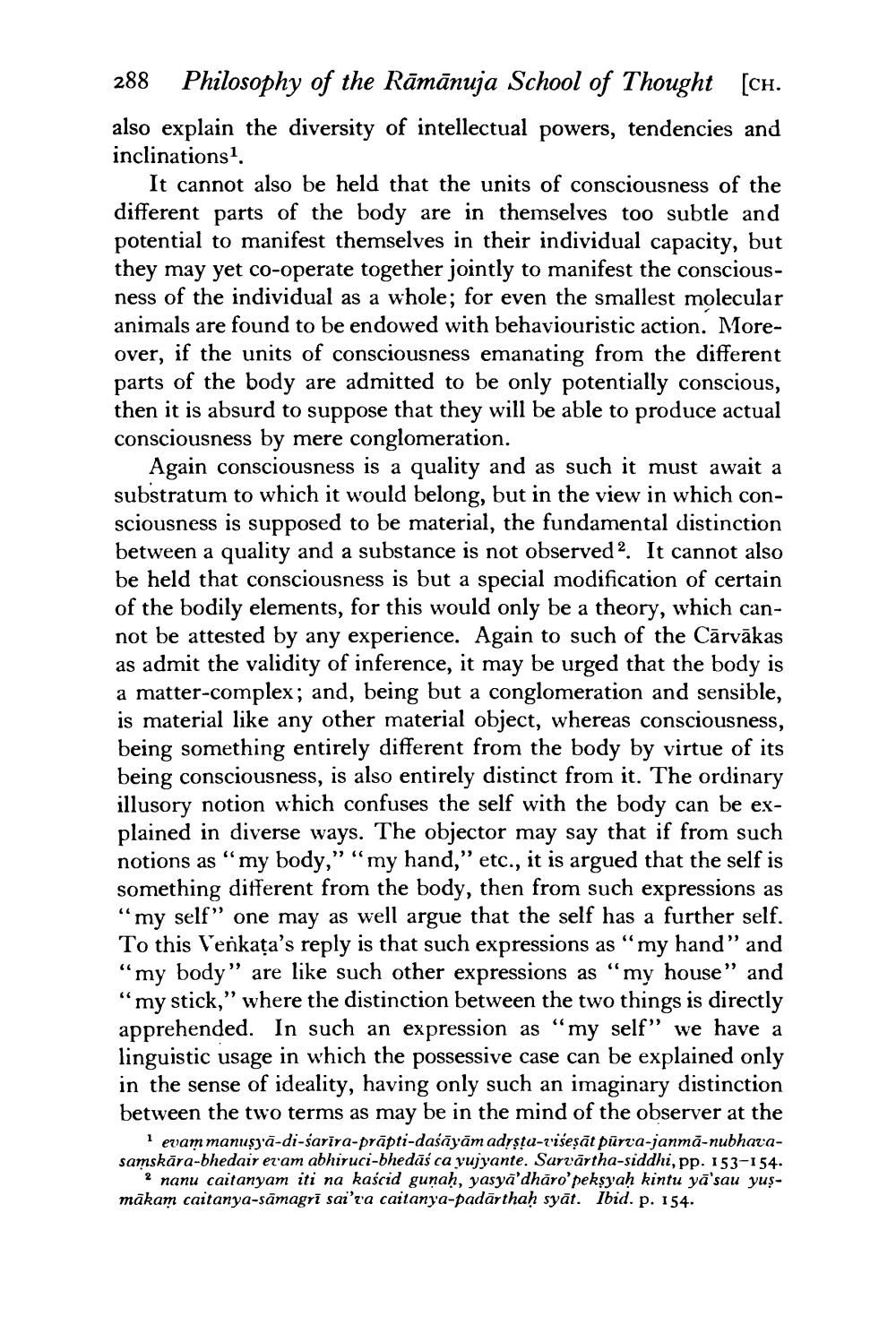________________
288 Philosophy of the Rāmānuja School of Thought (CH. also explain the diversity of intellectual powers, tendencies and inclinations?
It cannot also be held that the units of consciousness of the different parts of the body are in themselves too subtle and potential to manifest themselves in their individual capacity, but they may yet co-operate together jointly to manifest the consciousness of the individual as a whole; for even the smallest molecular animals are found to be endowed with behaviouristic action. Moreover, if the units of consciousness emanating from the different parts of the body are admitted to be only potentially conscious, then it is absurd to suppose that they will be able to produce actual consciousness by mere conglomeration.
Again consciousness is a quality and as such it must await a substratum to which it would belong, but in the view in which consciousness is supposed to be material, the fundamental distinction between a quality and a substance is not observed?. It cannot also be held that consciousness is but a special modification of certain of the bodily elements, for this would only be a theory, which cannot be attested by any experience. Again to such of the Cārvākas as admit the validity of inference, it may be urged that the body is a matter-complex; and, being but a conglomeration and sensible, is material like any other material object, whereas consciousness, being something entirely different from the body by virtue of its being consciousness, is also entirely distinct from it. The ordinary illusory notion which confuses the self with the body can be explained in diverse ways. The objector may say that if from such notions as “my body," "my hand,” etc., it is argued that the self is something different from the body, then from such expressions as "my self” one may as well argue that the self has a further self. To this Verkața's reply is that such expressions as “my hand” and “my body" are like such other expressions as “my house" and "my stick,” where the distinction between the two things is directly apprehended. In such an expression as “my self” we have a linguistic usage in which the possessive case can be explained only in the sense of ideality, having only such an imaginary distinction between the two terms as may be in the mind of the observer at the
Ievam manuşya-di-sarira-prāpti-dasāyām adrsta-riseşāt pūrva-janmā-nubhavasamskāra-bhedair eram abhiruci-bhedās ca yujyante. Sarvārtha-siddhi, pp. 153-154.
2 nanu caitanyam iti na kaścid gunah, yasyā'dhāro' peksyah kintu yā'sau yusmākam caitanya-samagri sai'ra caitanya-padārthaḥ syāt. Ibid. p. 154.
rāpti-dsca yujyante dháro peksyiah. .




